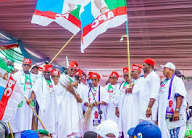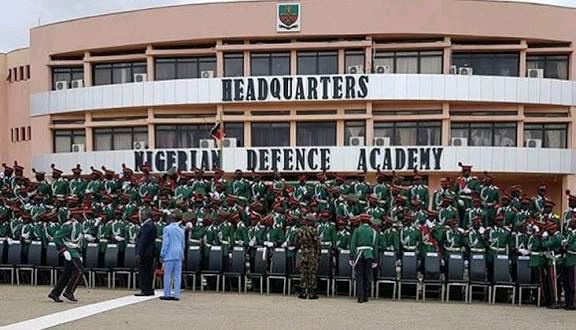Nigeria Secures $747 Million Syndicated Loan for Lagos-Calabar Coastal Highway
The Federal Government of Nigeria has secured a $747 million syndicated loan, led by Deutsche Bank, to fund the construction of Section One of the ambitious Lagos-Calabar Coastal Highway.
The loan deal, which marks a major milestone in the nation’s infrastructure development strategy, was formally announced on Wednesday, July 10, 2025.
The funds will support the construction of a 47.47-kilometre stretch of the highway, running from Victoria Island to Eleko Village in Lagos State. This segment constitutes the first phase of the extensive Lagos-Calabar Coastal Highway project, which spans approximately 700 kilometres and is designed to link Lagos to Calabar, traversing eight coastal states.
The syndicated loan arrangement includes a consortium of international and regional financial institutions, among them Deutsche Bank (serving as Global Coordinator, Lead Arranger and Bookrunner), First Abu Dhabi Bank, Africa Export-Import Bank (Afrexim), Abu Dhabi Exports Office, ECOWAS Bank for Investment and Development, Nexent Bank, and Nigeria’s Zenith Bank.
Political and commercial risk insurance for the loan is being provided by the Islamic Corporation for the Insurance of Investment and Export Credit (ICIEC), a member of the Islamic Development Bank Group. This insurance framework is expected to give investors confidence and ensure stability throughout the financing and implementation phases of the project.
According to the Federal Ministry of Works, the construction is being handled under an EPC+F (Engineering, Procurement, Construction + Financing) contract model.
The contractor, Hitech Construction Company Ltd., is a Nigerian firm responsible for executing the project while also structuring and supporting its financing. The firm has already made significant progress, with the ministry confirming that over 70% of Section One is complete.
The project utilizes Continuously Reinforced Concrete Pavement (CRCP), a modern technique intended to deliver a road lifespan of at least 50 years with minimal maintenance.
This choice aligns with the government’s goal of developing durable, long-term infrastructure solutions.
Minister of Works, David Umahi, hailed the financial agreement as a breakthrough for Nigeria’s infrastructure financing.
“This is the largest road infrastructure loan ever secured in the country’s history. It signals strong international investor confidence in Nigeria’s renewed commitment to economic and infrastructural reforms,” he said.
The Lagos-Calabar Coastal Highway is a flagship initiative under President Bola Tinubu’s Renewed Hope Infrastructure Development Agenda.
The administration projects that the entire highway, upon completion, will significantly improve connectivity, boost coastal tourism, enhance national integration, and drive regional trade along Nigeria’s southern corridor.
The full project is expected to cost approximately $11 billion and will be implemented over a period of eight years.
Once completed, it will traverse Lagos, Ogun, Ondo, Delta, Edo, Bayelsa, Rivers, Akwa Ibom, and Cross River States, ending in the city of Calabar.
Officials have indicated that tolling arrangements are being developed to support the long-term financial sustainability of the highway.
This would enable the government to generate revenue from the infrastructure while ensuring quality maintenance.
Experts say this loan deal represents a significant shift toward public-private collaboration in Nigerian infrastructure, reducing the burden on government budgets and attracting global investment.
The Lagos-Calabar Coastal Highway has long been viewed as a transformative project with the potential to unlock the economic potential of Nigeria’s coastal regions. With this new funding in place, the Tinubu administration has taken a major step toward realizing that vision.







